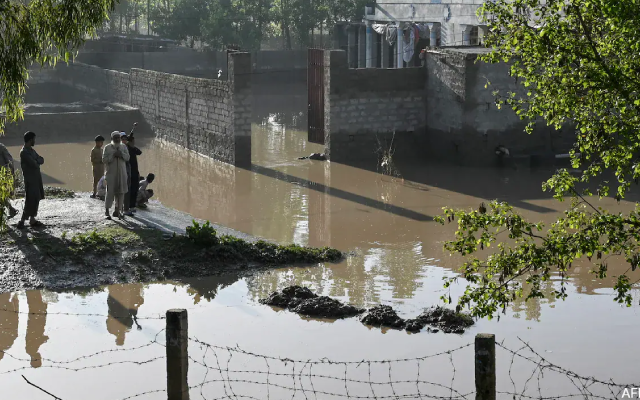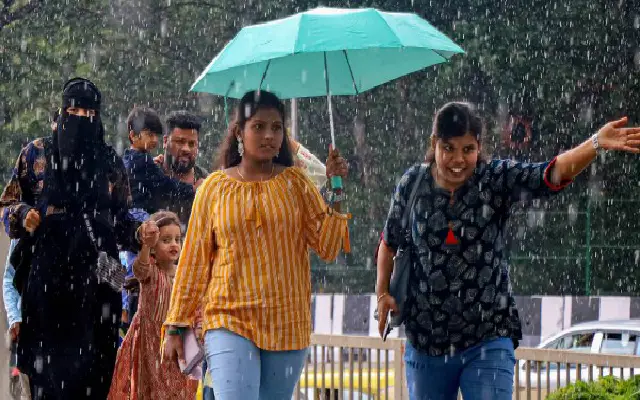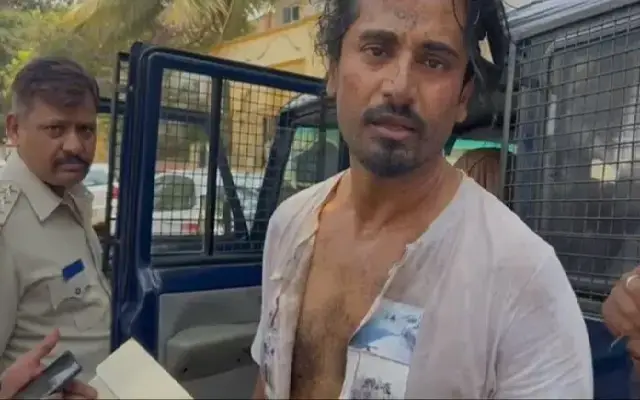“First in 2002 and now in 2015, the Prime Minister’s silence raises questions for which Indian democracy demands an answer. It is a silence that verges on complicity, indifference and grows in cynicism day by day. ……. Modi may not add to communal understanding but he has contributed to the languages of violence”. This is the conclusion of a comment article by Shiv Visvanathan in dailyO.in.
For Visvanathan, who is not shocked by Prime Minister Modi’s silence due to what agenda Modi (with guidance from his RSS overlords) has delegated to the Hindutva wing of the government to achieve, but certainlyis worried by the insensitiveness exhibited by him. It is because the position of a Prime Minister in a democracy is the place holder of that moral position and unitive function whose primary constitutional role is to represent all Indians. In the same manner, the Prime Minister’s silence has not gone unnoticed even among the staunchest supporters of him. A few examples here, will help to see this point.
A silence that shocked even the supporters:
After the Dadri lynching episode there is shock and incomprehension among many who honestly believed in Modi’s election propaganda about development and voted for him (certainly not for BJP or Hindutva). If Modi sympathisers such as Tavlin Singh who minced no words in her anger at Modi’s silence. In the articles in the Indian Express, when many analysts and critics reacted with disbelief at his lack of compassion, Tavlin Singh minces no words. For her the incident of Dadri and Modi’s silence about it are seriously worrying because it will completely derail what Modi wanted to achieve, as she writes:
“It was a shameful display of primitive, provincial thinking, and Mr Modi would do well to notice that, along with the ‘gharwapasi’ nonsense that went on through his entire first year in office, it serves to distract from the reasons why he became Prime Minister. The vote was for change and development and not Hindutva. Anyone who tells him otherwise is lying. And yet he has done nothing to stop the theft of his mandate by people who would not have been ministers or members of Parliament if his slogan of ‘parivartan’ and ‘vikas’ had not found such resonance.”
Even some of the liberal Hindus who trusted Modi’s rhetoric of “sabka saath, sabka vikaas” and voted for him (maybe not even for BJP) appear to be aghast at the way Modi is managing his minsters and what the foot-soldiers of Hindutva do in the name of Hindus.
In a blogpost named “The Dadri death has killed a bit of hope in our minds too” in Opindia.com a supporter of Modi writes the following dissatisfactory comment: “I believed in a party which could act, instead of sending some baboons who blabber rhetorics and question others. I believed in a cause which promised a new India, a new outlook towards life. After seeing inappropriate actions in some places and inaction in the other, my faith is slowly receding in what I once believed.”
If disenchantment with what is happening in India in such a short time after Modi came to power with promises of development, removal of corruption, ushering in of good governance etc. it has everything to do with what his government is engaged in in reality i.e. the cultural politics of religion, divisiveness and communal hatred. This second agenda was not what they voted Modi for. This gutter politics of Hindu bigotry is a moral shame for most decent Hindus within and outside. This moral failure on the part of the Prime Minister is what is worrying his friends, critics and enemies alike. Despite his history in Gujarat, presiding over the worst communal riots by being silent, people hoped in his moral equanimity. His silence at events, where moral outrage should have been the reaction, is making people fear what is in store for the country under his rule where hate-mongers are allowed free handto vend their wares. This lapse in moral consciousness is what makes BhanuPratap Mehta analyse and contend what BJP ideologue Tarun Vijay wrote in Indian Express and how the blame for it should fall on Prime Minister Modi.
A Moral Failure:
Bhanu Pratap Mehta found it difficult to understand Modi’s silence but he sees a certain logic behind Dadri happening and Modi’s silence. After analysing and showing the instrumental reason behind Tarun Vijay’s argument in place of a sense of moral outrage, he concludes that “a lot of nasty people within the BJP and the Sangh Parivar are feeling empowered to the point of shamelessness. No one in the party is willing to signal an intolerance of the intolerant…….Those who spread this poison enjoy his patronage. This government has set a tone that is threatening, mean-spirited and inimical to freedom. Modi should have no doubt that he bears responsibility for the poison that is being spread by the likes of Culture Minister Mahesh Sharma and Vijay”. Mehta, here, especially refers to the interpretations and twists that BJP ideologues employed to justify a ‘murder most foul’. He identifies the origin of Dadri lynching in 2014 election rallies of Modi.
It is because during his 2014 election campaign Modi made no distinction between cow protection and beef export. He deployed the discourse of beef eating and export as ‘pink revolution’ and blamed Congress for promoting it through subsidies. Merging the emotional religious (but politically employed) symbolism of the cow with beef, Modi has tried to delegitimise a cultural practice nonvegetarianism (eating beef) and economic practices(trading in meat)of minorities, backward classes and nonvegetarians. Therefore, Dadri killing should be seen as an outcome of discourses and mobilisations surrounding the topic of pollution, purity, vegetarianism, beef eating, beef ban, hurting Hindu sentiments and teaching a lesson to minorities, backward classes, seculars and rationalists (in a word those who do not subscribe to Hindutva). These arguments and symbols were used to teach these ‘pollutants’ a lesson by delegitimizing, terrorising and even violently getting rid of them.
Silence as Strategy:
If anyone has any illusions as to why Modi speaks if he speaks and why he remains silent when he does, one needs to recall what he did during the 2002 Gujarat riots. It was his silence, even as the Chief Minister, when his own party colleagues and the mobs incited by them set fire and wreaked destruction on Muslims of Gujarat lynching and burning thousands of them that brought him majority Hindu support. That support was converted into votes and power by silencing minorities, backward classes, secular ideologues and of course anyone who disagreed. That very silence made him the supreme epitome of Hindutva ideology which thrives on Muslim hatred and authoritarian power.
Besides, it is not only his silence about the killing of Muslims and ghettoising them during his rule in Gujarat that has won him votes but also, instead of helping these unfortunate victims of violence rehabilitate, his taunts and allegations that those killed during Gujarat violence are like victims of motor accident and naming those ghettos where the surviving Muslims lived as population factories, that won him the Prime Ministership. Also, it was not respect for India’s ‘unity in diversity’ and cultural difference that won him aspirational middle classes but the dream of a chauvinist Hindu identity that vanquishes the ‘enemy’, (the cultural, religious and ideological ‘other’) that brought him to Delhi. And finally, Modi, unlike Gandhi or Nehru, did not come to power as a statesman who occupies a moral high ground by denouncing hate, divisiveness and violence, but it was precisely the promotion of such immoral, mean, divisive and majoritarian chauvinist agendas that brought him to power. If, where he is now is gained through a strategy of silence in the face of communal hatred, violence, mob rule, lynching, rape and pauperisation of minorities, dalits and those opposed to Hindutva ideology, why should these very targets of his rise to power be protected or stood for?
Well, one would say, being Prime Minister he has a moral duty to protect all the citizens of the country, or at least speak out about what is ethically right and wrong, (as murder is ethically wrong wherever it happens by whatever means and perpetrated by whichever community or group). Maybe, we, as citizens of India under a government bent upon cleansing the nation off pollutants of various kinds, are a deluded lot: those liberal Hindus who believed in Modi’s development talk; those of us who believed that a Prime Minister, who has been trusted by people with the highest office in the country, should practice ‘raj dharma’; and those of us who believe that the Prime Minister embodies justice and equality in a secular democracy. But the crucial question is this: what if his silence is strategic, calculated and in perfect line with the ideology of promoting the cause of ‘Hindu Rastra’ that his mentors, the RSS, wants him to establish? Our shock or disgust at this silence is justified but, when looked at from the strategic objective of cleansing the nation off pollutants, with Dadri lynching one pollutant is off the Hindu Pitrbhumi. In reality, what if the silence is meant to be a message to the targeted pollutants as warning: ‘Get ready, you, who pollute the nation. Your turn is next’.
 About the Author: Samuel Sequeira is a Postgraduate Researcher, at the School of English, Communication and Philosophy at the Cardiff University, Wales, United Kingdom. He is currently researching on issues such as South Asian immigrants in Wales, Immigration discourses in the UK and Identity and conflict.
About the Author: Samuel Sequeira is a Postgraduate Researcher, at the School of English, Communication and Philosophy at the Cardiff University, Wales, United Kingdom. He is currently researching on issues such as South Asian immigrants in Wales, Immigration discourses in the UK and Identity and conflict.
Disclaimer: The opinions expressed within this article are the personal opinions of the author. The facts and opinions appearing in the article do not reflect the views of Newskarnataka.com and Newskarnataka.com does not assume any responsibility or liability for the same


















